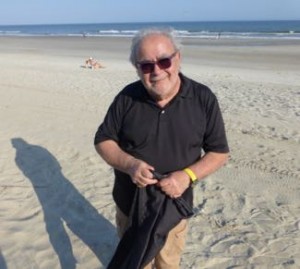Managing Your Energy Part 52: Musings on Self Realization, Part One: What Is Self Realization?

What does it mean to realize Self?
The more developed we become the fewer people are able to fully take in who we are, or recognize where we are coming from. Since we are social animals, we instinctually tend to bond by becoming like those around us, to fit in. This urge toward social adjustment is most intense during youth. It is limiting. Teens, for example, may conform rigidly in their group’s particular brand of nonconformity.
Individuation is a step toward Self Realization. Individuation—becoming a fully developed individual—challenges us to step into our uniqueness. As we do so, we may well find that our values, preferences, and ways of spending time are out of step with the herd. Our insights may be intolerable to those who live more superficially.
In this context of personal development, self realization can mean:
–Becoming who we genuinely are
–Making ourselves real
–Bringing forth our essence and expressing it in the outer world
–Realizing—as in having insight into—who we are
It can be strange to be around people—perhaps even stewing in the energy they are putting out—and realize that they do not and cannot recognize where we are coming from, how we feel, and what is important to us.
After the difficult process of separating the fibers we have entangled in group, family, or couple identity to weigh in as our authentic and unique selves comes figuring out how to relate all over again. How do you realize who you are without viable reflections from the people around you?
One way is to develop friends, healers, and/or spiritual associates who are at or beyond your own level of development. Relating being-to-being, in a two-way flow is a blessing. We all need accurate mirrors. Love, clarity, support, and co-creation bless such encounters. They enhance insight, clarity, fortitude, purpose, and confidence.
Until we stabilize authentic self knowledge, the way we experience ourselves may be markedly different among the projections and misconstructions of those who are unable to mirror us, who may in fact oppose or obstruct us. Those of us who are empathically open are often challenged to maintain our realization of who we are, feeding clarity, understanding, and love back into our Selves around confusing input. This process is an opposite of seeking to bond with a group that requires conformity. It may take some practice to learn to bond with groups open enough to encourage authentic participation.
The urge toward self realization, actualization, self awareness, awakening, and so forth is a major driver in the Universe. It provides the impetus to grow, supplies meaning, and gives us myriad processes that develop character, substance, positive values and mastery in the personality. Holding this aim, no matter what we call it, offers us the chance to take whatever experience we have and to dignify it by applying it toward something of ultimate value.
How do we become real to ourselves?
How do we become self aware?
What stands in the way of becoming self aware?



















